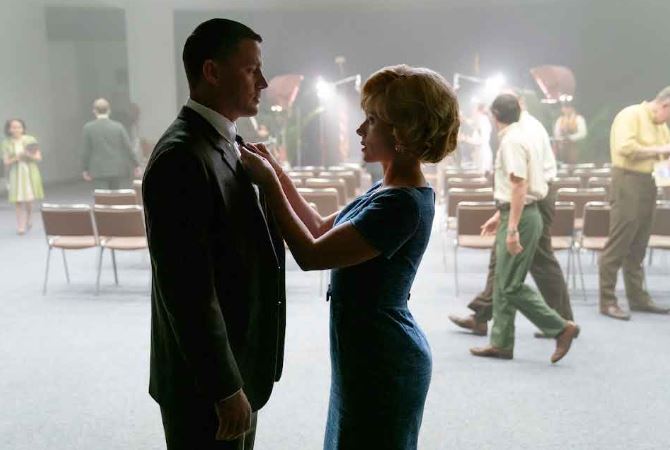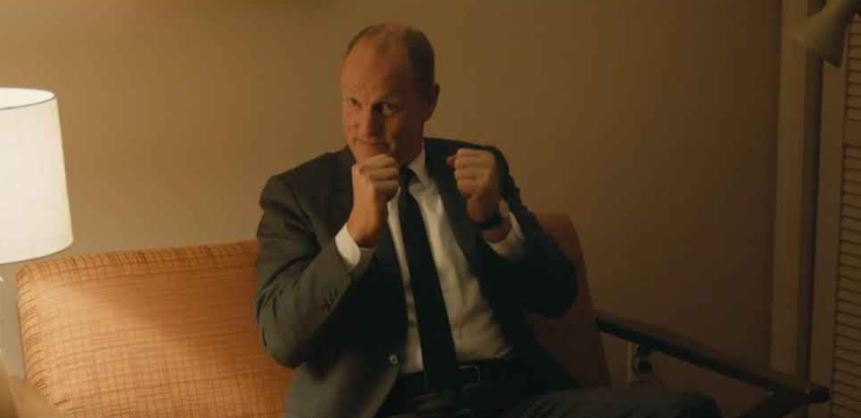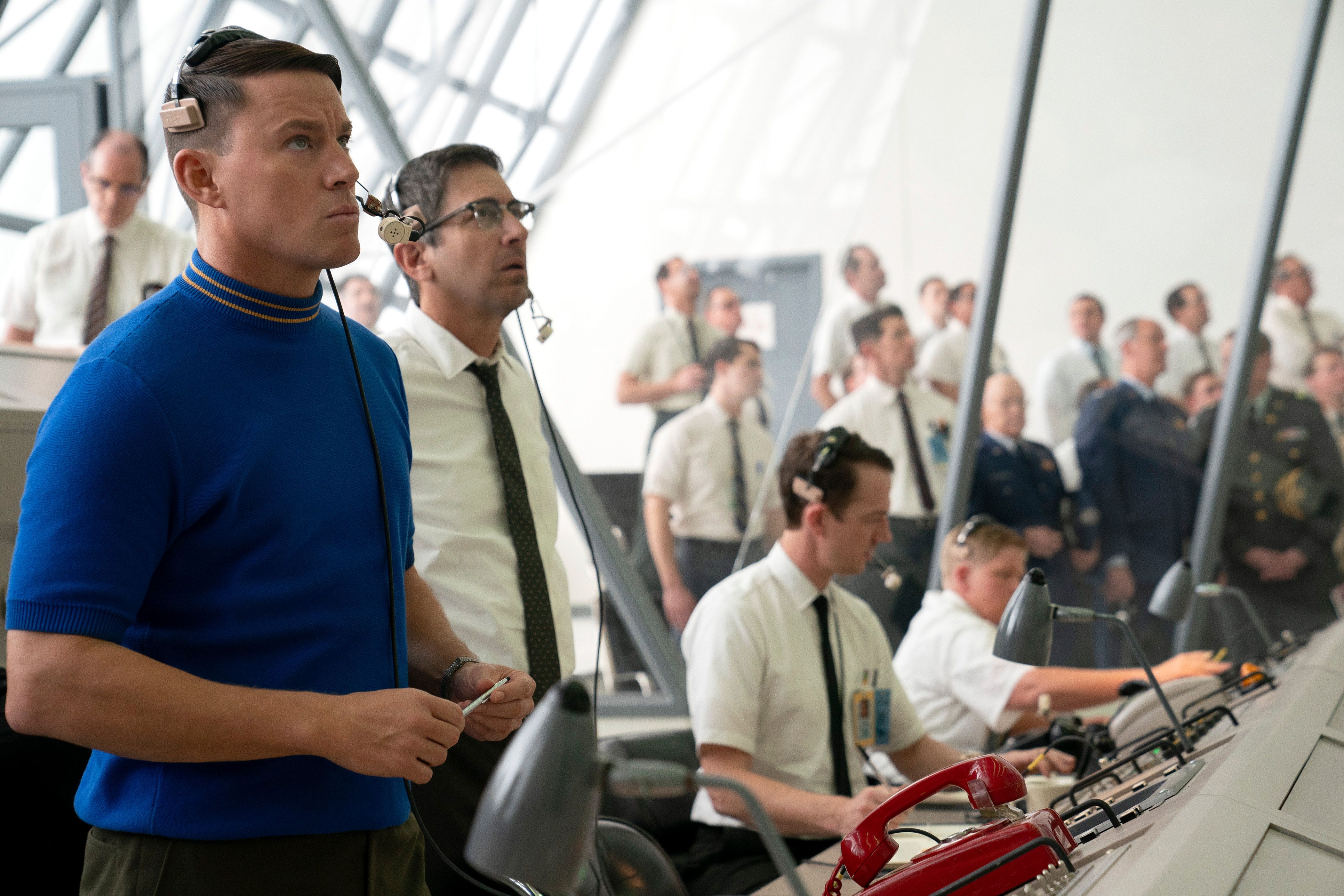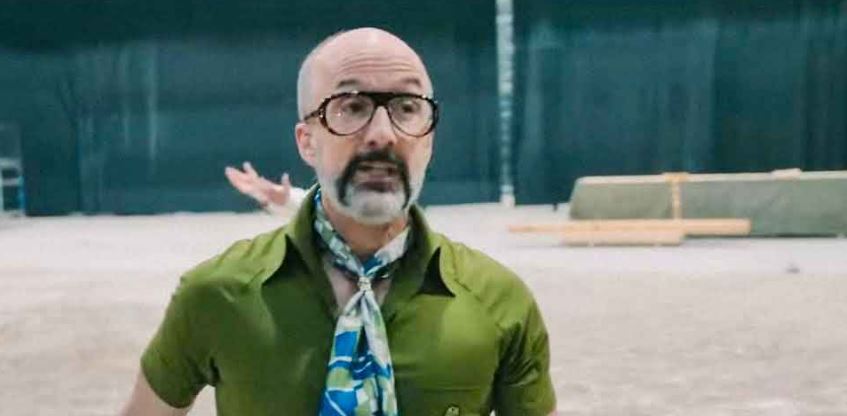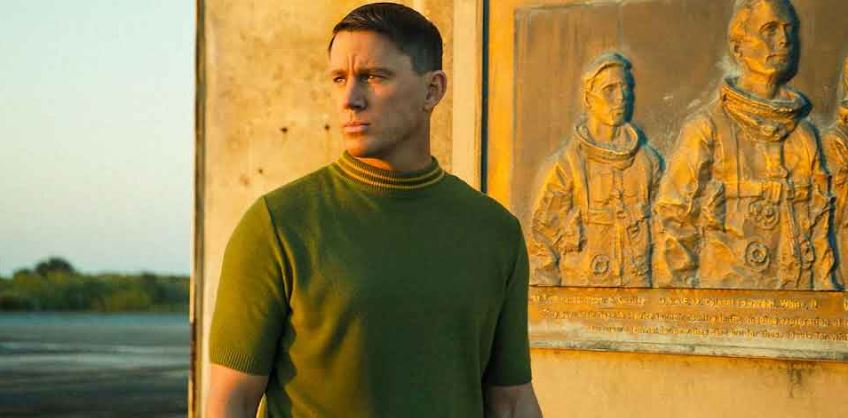Those of you who experience bulging veins in your forehead when presented with wackadoodle conspiracy theories, fear not. Greg Berlanti’s Fly Me to the Moon is not trying to convince you that the July 1969 moon landing was actually faked. Rather, it’s trying to tease the possibility that the U.S. government made an emergency backup version of the moon landing on terra firma, to be played only in the event of a failure to stick the landing – with the most important thing not being the telling of truths or the achievement of scientific breakthroughs, but the winning of battles in the cold war with the Soviet Union.
It’s an idea that lays the groundwork for great comedy, but unfortunately, does not usually produce it, often because it is not trying to. Fly Me to the Moon is several movies in one, and none is as satisfying as it might be if the filmmakers had just picked a lane.
That lane seems like it should be the wacky happenings on the set of the fake moon landing shoot, presided over by an effeminate director (Jim Rash) who is always in high dudgeon about something, be it his actors, his budget, or whether he’ll ever be able to tell anyone about what they are doing. There’s a tight 90-minute version of that story out there, written and directed by someone like Armando Iannucci, the creative force behind Veep and The Death of Stalin, who is always eager to stick a thumb in the eye of bureaucracy and government buffoonery.
That isn’t the version we get. The version we get devotes only 20 minutes or so to this aspect of the story, which is not very much for a movie that runs nearly 2 hours and 20 minutes. It focuses much of the rest of its time, rather earnestly, on a relationship between a marketing expert and the director of NASA, and tries to instil wonder in us about the concept of reaching the stars. There are already a lot of other movies out there capable of doing both of those things better than Fly Me to the Moon can do them.
The marketing expert is Kelly Jones (Scarlett Johansson), who we meet trying to sell car execs on seatbelts in sportscars by wearing a fake pregnancy belly. She’s got just the, shall we say, moral flexibility to be recruited by mysterious government operative Moe Berkus (Woody Harrelson), who at first tells Kelly he’s interested in her ability to increase public confidence in the flagging space program, which has been costly both in terms of budget and human lives, following the Apollo 1 fire that killed three astronauts. He essentially gives her no choice, though, as he makes it clear he knows things about her past that she wouldn’t want revealed.
Installed in Florida where NASA is planning the Apollo 11 mission, Kelly meets NASA director Cole Davis (Channing Tatum), a would-be astronaut who failed the physical that would have allowed him to go to space. He’s also wrestling with demons for his role in the Apollo 1 disaster. A preternaturally honest man, Cole chafes against Kelly’s methods, which include getting astronauts into advertising for all sorts of household products. But he’d really have a conniption if he knew about the secret mission for which Moe Berkus has conscripted her, holding the same threats over her head: She’s to stage an alternate moon landing in a top-secret warehouse, and it may be the one they’ll air to the world no matter whether the real mission is a success or not.
In his opening voiceover, Harrelson’s character gives the standard disclaimer that this is “mostly true,” though it’s hard to figure out how the film reaches that conclusion. The only characters who are verifiably real are astronauts Neil Armstrong, Buzz Aldrin and Michael Collins, and they play only a small role in the proceedings. We don’t expect movies to be true, but movies based on high-profile historical events probably need to adhere to that standard slightly more than others. Anything related to the shoot of the fake moon landing is exempt, since it involves necessarily speculative thinking, but events related to the actual lift-off of Apollo 11 get a fast-and-loose treatment.
One of those is Tatum as Cole Davis. As compelling as he can be in the right role, this is not the right role for Channing Tatum. He just isn’t a “man of science” type, and his physique and the absurdly coloured shirts he wears are not the only thing that make him stand out from a control room full of geeks. Even as he’s repeatedly involved in trying to make amends for the Apollo 1 disaster – a theme that gets tiresome pretty quickly – he just doesn’t carry the history of a dedicated professional who knows all the ins and outs of space travel. All the ins and outs of a fashion shoot, maybe.
Johansson is better as the marketing expert, but the movie lacks the wicked sense of humour to make her what she really should be: a cunning, ruthless professional who secretly loves the idea of a fake moon landing, because it would be the quintessential example of advertising’s mandate to make something shiny out of something hollow.
Fly Me to the Moon does not have the courage to make any of its characters unlikable – not even, in the end, Harrelson’s government operative. It wants us to know that everyone means well and that the pursuit of space exploration is noble, rather than having a cocked eyebrow about all of this. What’s more, it wants to leave us in awe, when that just isn’t why we came to this movie. We’ve already seen that movie before, and we wanted this one to be something different.
A romantic comedy, a space race period piece, an adventure with scenes of action, and finally, buried somewhere in there, the dark satire that the trailer seems to promise – it’s just too many moving parts. From the evidence here, maybe there wasn’t the material for a full 90-minute movie about the fake moon landing. But if they’d have let Armando Iannucci take his crack at it, it would have kept the acid tone that Fly Me to the Moon seems to promise – and would have been consistently funny at that.
Fly Me to the Moon opens in cinemas today.
